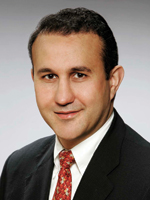ABA Issues Opinion on Judges’ Use of Internet for Factual Research
The Bencher—May/June 2018
By Francis G.X. Pileggi, Esquire
 The American Bar Association recently issued Formal Ethics Opinion 17-478 with the stated purpose of helping the judiciary “navigate the hazards of internet research.” This opinion by the ABA Standing Committee on Ethics and Professional Responsibility reviews the ethical boundaries under the ABA Model Code of Judicial Conduct for performing independent “fact-finding on the internet that is not tested by the adversary system.” The opinion specifically interprets Rule 2.9(C) of the 2007 ABA Model Code of Judicial Conduct as amended by the ABA House of Delegates through August 2010.
The American Bar Association recently issued Formal Ethics Opinion 17-478 with the stated purpose of helping the judiciary “navigate the hazards of internet research.” This opinion by the ABA Standing Committee on Ethics and Professional Responsibility reviews the ethical boundaries under the ABA Model Code of Judicial Conduct for performing independent “fact-finding on the internet that is not tested by the adversary system.” The opinion specifically interprets Rule 2.9(C) of the 2007 ABA Model Code of Judicial Conduct as amended by the ABA House of Delegates through August 2010.
There is no similar provision in the Code of Conduct for United States Judges, and many states have not adopted Model Rule 2.9(C). The State of Delaware, for example, has not adopted the 2007 Model Code’s version of Rule 2.9(C).
Rule 2.9(C) permits a judge to consider facts “that may properly be judicially noticed” and specifically refers to the law governing judicial notice in Federal Rule of Evidence 201(a), which provides for the judicial notice of adjudicative facts, as compared to legislative facts. Adjudicative facts are sometimes described as those facts that would normally go to the jury for decision in a jury trial.
This topic is challenging to cover in the limited space of a short column, and I do not purport to provide any advice to judges in this column. As I have done during the more than 20 years of writing this ethics column, my limited goal is to summarize a recent opinion that may be of practical value--primarily to fellow lawyers.
Importantly, Rule 2.9(C) does not preclude legal research on the internet by judges. ABA Formal Opinion 17-478 provides four specific guidelines for independent factual research by judges via the internet.
First, the judge should determine if the additional information being sought on the internet is necessary to decide the case. If so, that type of information must either be subject to proper judicial notice or provided by counsel for the parties.
Second, if the internet search is being used to corroborate facts, discredit facts or fill a factual gap, those are adjudicative facts that should not be determined by independent internet research.
Third, if the judge is seeking general or educational information that is useful to provide the judge with a better understanding of a subject unrelated to a pending or impending case, then the internet may be used just as other educational sources, such as judicial seminars.
The fourth guideline provided in the opinion suggests that if the judge is seeking background information about a party or about the subject matter of a pending or impending case, the key inquiry is whether the information to be gathered is of factual consequence in determining the case. If it is, it must be subject to testing through the adversary process.
In those states that have not adopted the version of Rule 2.9(C) of the Code of Judicial Conduct addressed in the ABA Formal Opinion, Rule of Evidence 201 regarding judicial notice of adjudicative facts should be the starting point for an analysis to determine the appropriateness of independent factual research by judges or their staff.
For example, Delaware Rule of Evidence (DRE) Rule 201(c) allows the court to take judicial notice “whether requested or not.”
This rule of evidence can easily be applied to allow for judicial notice of some factual information that is readily available on the internet, such as on the website of the U.S. Securities and Exchange Commission. See generally In re Primedia, Inc., 2013 Del. Ch. LEXIS 306 (Del. Ch. Dec. 20, 2013) (allowing judicial notice of a form filed with the SEC that met all the requirements as to accuracy and reliability under DRE Rule 201).
As a practical matter, whether or not factual information is obtained via the internet may not be the most important determinative factor in an analysis about whether it would be appropriate for a court to independently access the information. Rather, the existing standards under Rule 201 about the facts being “capable of accurate and ready determination by resort to sources whose accuracy cannot reasonably be questioned” should be a useful reference for members of the bench and the bar alike.
Francis G.X. Pileggi, Esquire is the member-in-charge of the Wilmington, Delaware, office of Eckert Seamans Cherin & Mellott, LLC. He summarizes key corporate and commercial decisions of Delaware Courts at www.delawarelitigation.com
© 2018 Francis G.X. Pileggi, Esq. This article was
originally published in the May/June 2018 issue of The Bencher, a bi-monthly
publication of the American Inns of Court. This article, in full or in part,
may not be copied, reprinted, distributed, or stored electronically in any form
without the written consent of the American
Inns of Court.